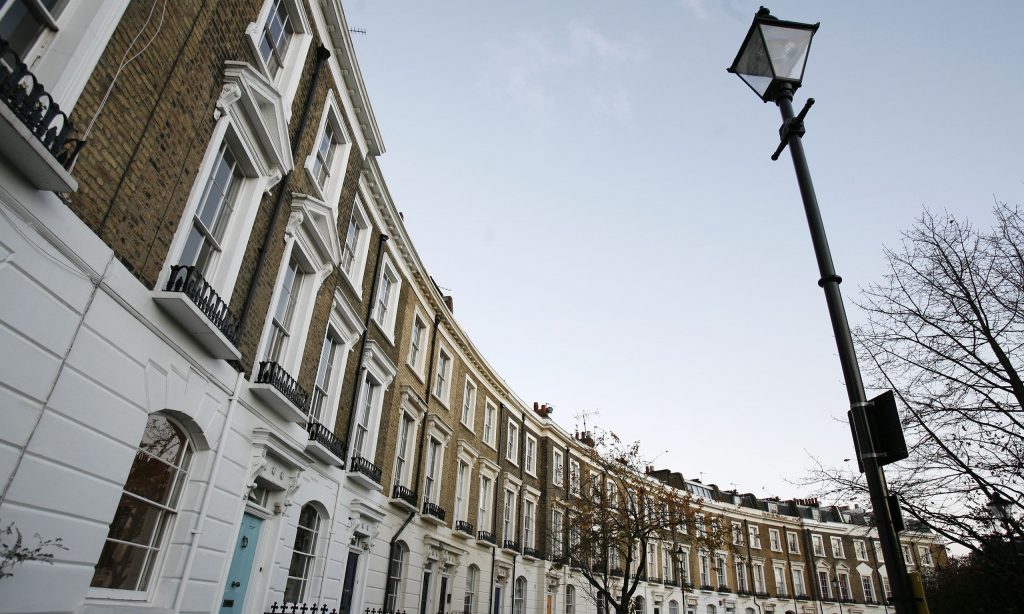EU exit expected to cause sharp fall in UK house prices. – FT.com
The UK’s house price boom is set to come to an abrupt end after the vote to leave the EU, estate agents and analysts said, predicting an immediate slowdown in transactions and a halt to the steep price rises of recent years.
Housebuilders shares fall sharply and analysts also predicted a shock for commercial property.
Richard Donnell, insight director at Hometrack, said that “the immediate impact is likely to be a fall in housing turnover and a rapid deceleration in house price growth” as buyers “wait and see” how the economy is affected.
Price growth is set to go into reverse, meaning that prices will be flat over 2016, said Adam Challis, head of residential research at the property advisers JLL. He said the company expects price falls of 3 to 5 per cent in both 2017 and 2018 — but that is “based on the best case scenario of a relatively orderly adjustment to our new political realities”.
Housebuilders’ shares were among the biggest fallers on the FTSE 100, with Barratt, Persimmon and Berkeley all falling more than 20 per cent in early trading.
Henry Pryor, a London buying agent, predicted a more drastic fall in house prices. “The average home in the UK will probably end the year worth £20,000 less than it was worth in January,” he said. He added that the fall would be bigger at the top end of the market.
Analysts expect buyers’ and sellers’ uncertainty to drive an initial slowing of the market, while the longer-term fallout will be determined by how severely Brexit affects the economy.
Mr Donnell said that in the past external shocks have cut sales volumes by as much as 20 per cent. Volumes are already on the decline in the UK.
London, where house price growth has been running at an annual 13 per cent, is expected to be most severely affected.“House price growth is already weak and running in low single digits in central London areas, and modest price falls now appear likely in higher value markets as prices adjust in the face of lower sales activity,” said Mr Donnell. “Even a sharp fall in sterling is unlikely to attract overseas buyers in the near term.”
While the Bank of England may cut the base interest rate, banks could raise their rates to control lending levels, putting more downward pressure on transactions, said Grainne Gilmore, head of UK residential research at Knight Frank.
“The combination of slowing GDP, rising longer term rates and political uncertainty is like Kryptonite for that group of shares,” said Charlie Campbell, analyst at Liberum.
Commercial property is also set to suffer: JLL said it expected prices to drop 10 per cent in the next two years, while Mike Prew, analyst at Jefferies, predicted a “demand shock” as businesses move jobs to continental Europe.
Banks such as Citigroup and JPMorgan warned in the run-up to the referendum that they might have to move jobs out of London in the event of an Brexit. This has large potential implications for Canary Wharf, home to thousands of their employees.
“There will be a period of reassessment for the property market,” says Sir George Iacobescu, the chairman and chief executive officer of Canary Wharf Group, the owners and developers of Canary Wharf. “The property market is a service and as a service it will have to follow what demand is on both the office and residential side. Wie will have to see over the next few months whether tenants and buyers want more or less space.”
Office rents in the capial will drop, potentially by as much as 18 per cent in the two years after the UK activates its Article 50 exit from the EU, Mr Prew predicted. This is based on an estimate that 100,000 jobs could be relocated out of London.
“We expect London will ultimately end up being less successful, and it will be different,” Mr Prew said.









